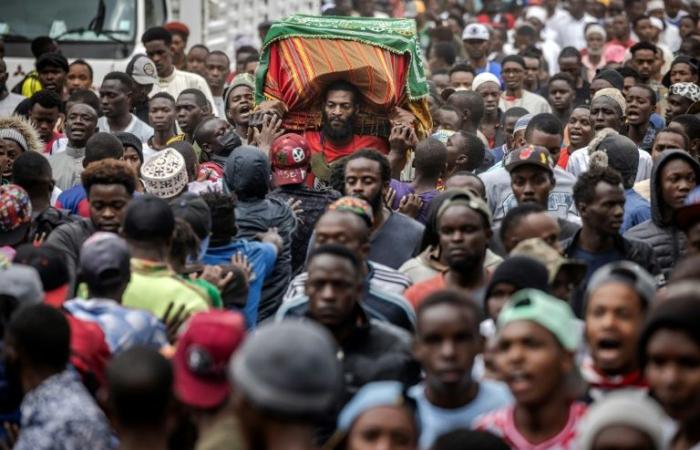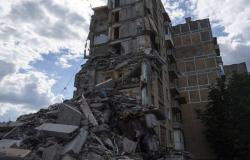Kenya: at least 30 dead in Tuesday’s anti-government protests, according to HRW
At least 30 people were killed Tuesday during anti-government protests in Kenya, Human Rights Watch said on Saturday, the heaviest toll reported on this day of mobilization which turned into a bloodbath.
“Firing directly into crowds without justification, including when protesters are trying to flee, is completely unacceptable under Kenyan and international law,” Otsieno Namwaya, HRW’s associate Africa director, said in a statement.
An earlier report by the official human rights watchdog (KNHRC) put the number of deaths in the country at 22. The Police Reform Task Force, a group of local NGOs including the Kenyan branch of Amnesty International, said it had counted 23 deaths “caused by police shooting” as of the evening of June 25.
The authorities have not communicated any results of this day, marked in particular by the storming of Parliament by demonstrators shortly after the deputies had voted for a criticized 2024-25 budget project introducing tax increases.
The day after this deadly day, President William Ruto announced the withdrawal of the budget bill and called for consultation with the youth, at the origin of this protest which then spread across the country.
HRW based its report on “testimonies, publicly available information, hospital and death records”, putting the number of deaths at 31.
Its investigators notably saw 26 bodies of demonstrators in different morgues in Nairobi, and other research “shows that the police killed at least three people in the town of Eldoret, one person in Nakuru and one in Meru”, details HRW in a press release.
Like several other NGOs, it accuses the police of having fired live ammunition into the crowd, particularly in front of Parliament, and calls on “the Kenyan authorities to investigate quickly but in a credible and transparent manner into the abuses committed by the security forces.” .
– Generation Z –
HRW also reports the testimony of a human rights activist claiming that 22 people were killed by “military” in Githurai, about twenty kilometers north of Nairobi.
According to the activist, “eight military officers (…) opened fire on people” and “killed several people, including people who were not participating in the demonstrations.”
“When the military stopped shooting at people, we confirmed that there were at least 22 dead,” he said, quoted by HRW, adding that “the shooting by the military, joined by the police, resumed at 10 p.m. and continued until 11 p.m.”
After two largely peaceful demonstrations on June 18 and 20, the third day of the “Occupy Parliament” movement, launched on social networks to oppose the 2024-25 budget proposal of the government led by the president William Ruto planning the introduction of new taxes turned into a bloodbath.
This protest has strongly mobilized within the “Generation Z” (young people born around the year 2000), before drawing in its wake Kenyans of all ages. The anti-tax slogan has become anti-government, with cries of “Ruto must go”.
This budget project has crystallized a broader discontent among the population, hit by economic difficulties for several years.
William Ruto was elected in August 2022 promising to defend the poorest.
Once in power, he took austerity measures, notably increasing income tax and health contributions last year and doubling VAT on petrol.
For the government, these tax measures are necessary to give the country more room for maneuver.
Kenya’s public debt amounts to around 10,000 billion shillings (71 billion euros), or around 70% of GDP.
Do you have a real estate project in mind? Yakeey & Médias24 help you make it happen!






